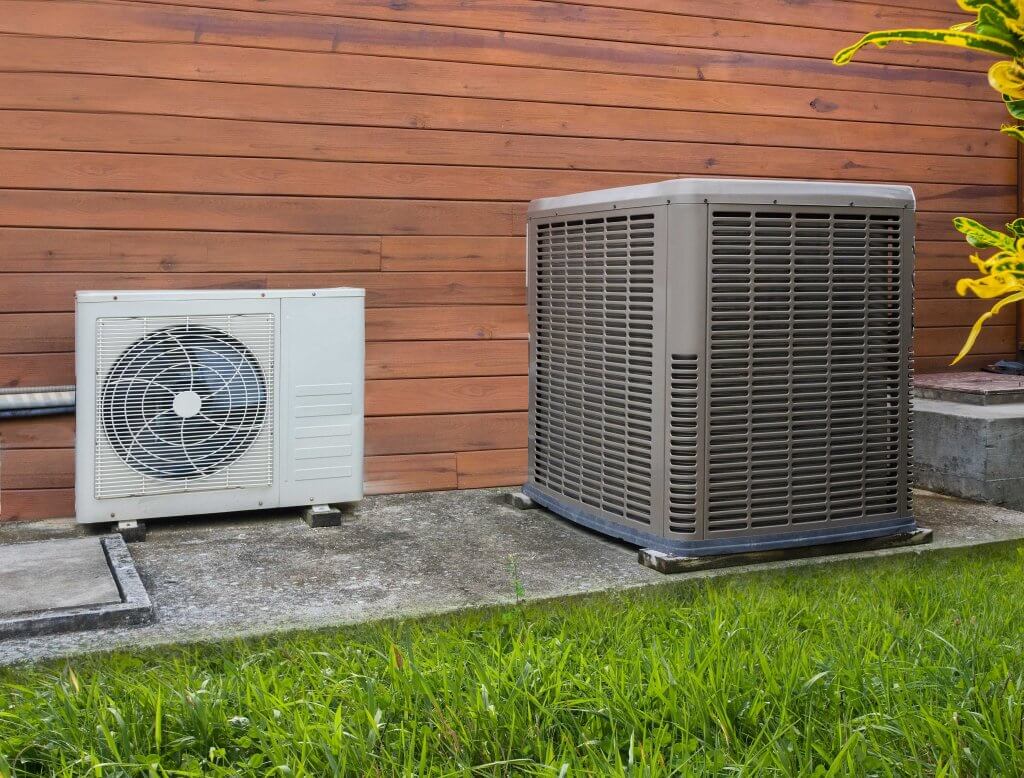As the weather warms up here in New England, many of you are turning on your AC systems for the first time this year. At HomeWiz, a common question that we get is "Why is my AC leaking water?" For central AC systems, water leaking is a common problem that any technician can address.
When water collects around a central air conditioning unit, it is not only inconvenient but sometimes a health hazard. Stagnant water in dark, warm areas of your home can lead to mold and bacteria buildup. Water from a leaking AC system can also cause water damage and decrease HVAC efficiency and performance.
You bring your car in for annual inspection and maintenance, and your HVAC system deserves the same treatment. When you neglect the annual tune-up for an AC system, the performance degrades faster and leads to more severe, harder-to-fix issues down the road. Regular AC maintenance will often prevent these issues, like a unit that leaks water, from occurring.
There are several root causes as to why your central AC is leaking water. For some of these causes, you can tackle the issue yourself. For most, however, you'll likely need to contact a licensed HVAC technician to resolve the issue and get your AC running smoothly again.
Let's break down some common causes of a leaking air conditioner.
- Condensate drain line issues. The condensate drain line is a pipe (often, a PVC pipe) that removes collected water from an air conditioning system. This drain line can clog if you haven't tuned up your AC unit or if there are poor quality air filters installed in it. Particles of sentiment, including dust and dirt can build up over time and back up the drain line, causing water to leak. The drain line can also break completely, which also causes water to leak. Either way, it's important to contact a licensed technician in these cases.
- Dirty air filter. When air filters in the AC system become dirty and clog up, they can end up freezing the evaporator coils. Then, the coils thaw out and generate an excess of water, thus causing a leak. If you're handy, you can change out the air filters yourself. Remember to turn off the power beforehand so that you're not working with live electricity. Then, remove the old filter -- which is usually located in the air handler or air duct return – and insert a new one, making sure that the arrows on the filter face the right direction. A dirty filter, however, is only a symptom, not a cure – and it often just buys you a small amount of time until the AC unit starts showing other signs of disrepair. When your AC unit has dirty air filters, it's usually a sign that you haven't been properly maintaining the system. You should change out air filters every 1-3 months during seasons when you use the HVAC system frequently.
- Low refrigerant. An AC system with a low amount of refrigerant significantly loses its effectiveness. Similarly to dirty filters, low refrigerant can cause the coils to freeze. The process of refilling the refrigerant requires an HVAC gauge and the ability to make specific calculations. For obvious reasons, this is work best reserved for a professional.
- Broken condensate pump. A condensate drain pump, sometimes known as a drain pump, is another potential cause of a leaking AC system. Not all AC systems have a drain pump, though. Air handlers have different ways of dispelling the condensation, and a condensate drain pump is one of those ways. If a drain pump isn't functioning properly, it likely needs to replaced by a licensed technician.
- Damaged drain pan. Many (but not all) HVAC systems utilize a drain pan, which protects your house from water damage. It acts as a backup safety measure against leaks, but sometimes that pan can fail, too. Older AC systems, especially, use metal drain pans that can corrode or rust over time. That's often a sign that your AC system is reaching the end of its life. Newer AC systems usually use drain pans with longer-lasting hardware. Drain pans also have holes in them that can clog up with dust and debris. Either way, you should call an HVAC technician to remedy this issue.
This article discusses central AC systems, but a standalone window unit AC that is leaking water is a different story. Window unit ACs typically dispel water from the outside, which isn't a problem. If water is leaking from the inside, it may be pitched the wrong way; in that case, you can try adjusting the angle. However, most window unit AC systems have a shorter shelf life and are often not worth repairing. In those cases, it's usually best to just replace the unit entirely.



